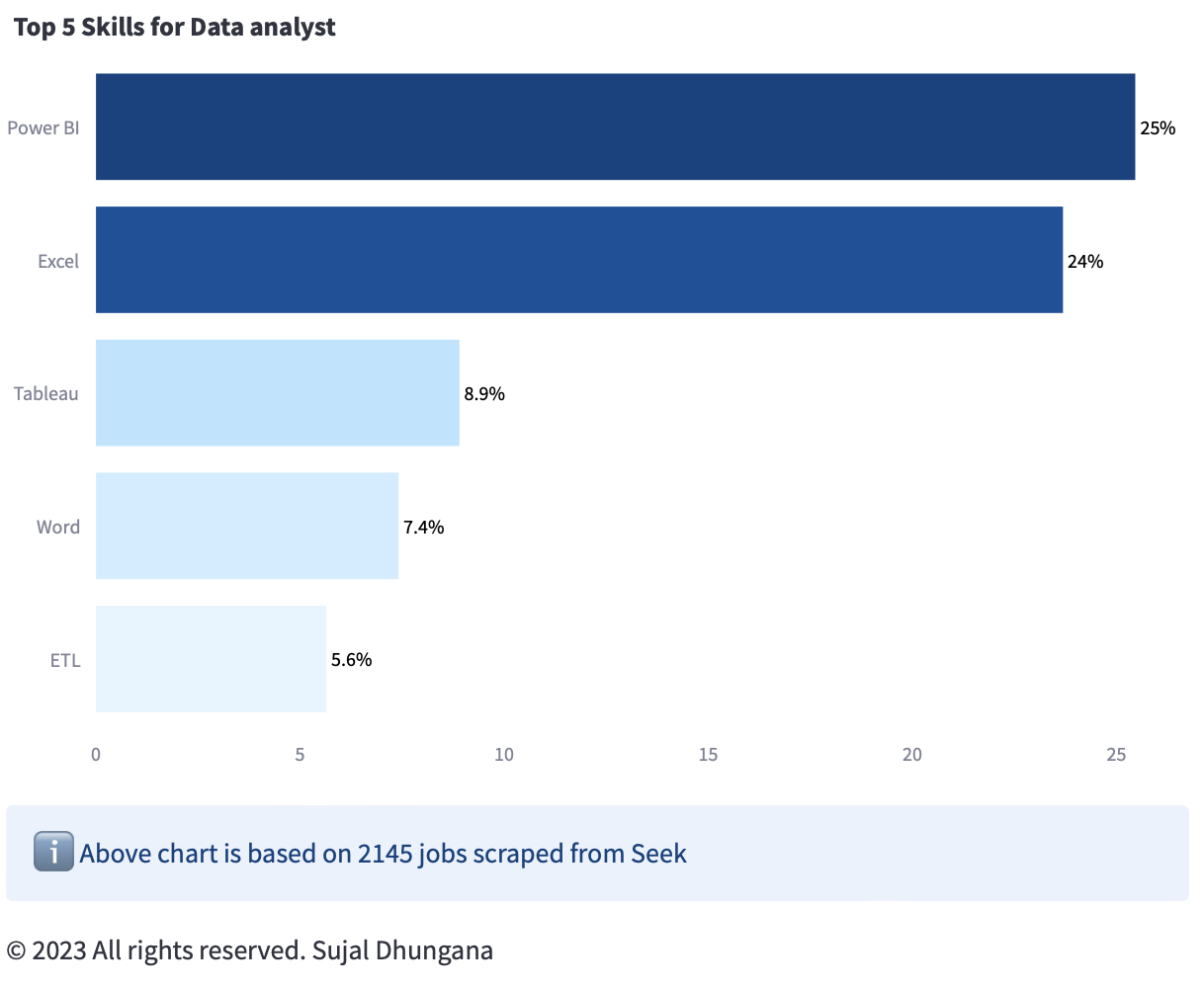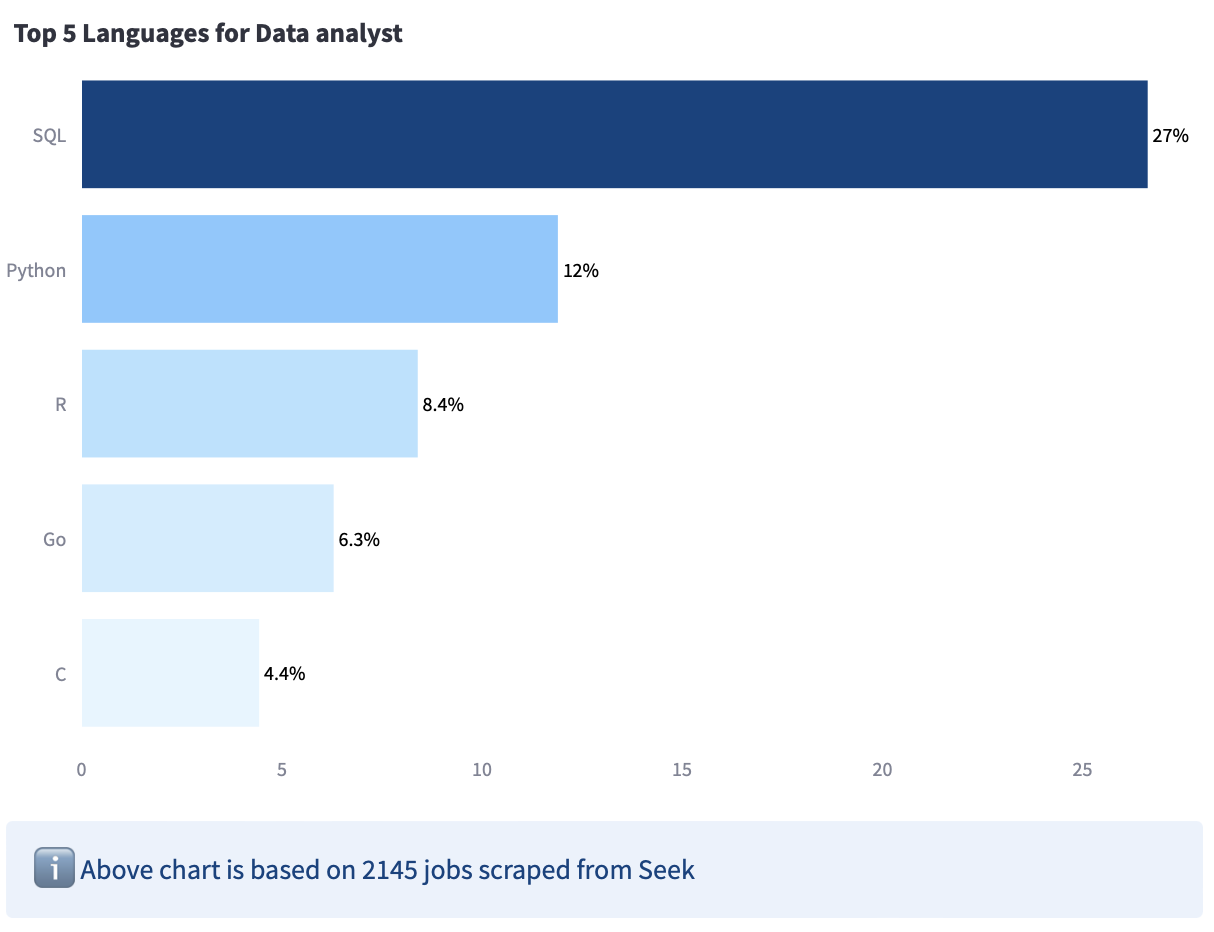Data analysts are in high demand in today's job market. They work with data to derive insights and support decision-making. To perform these duties, data analysts need strong problem-solving skills, the ability to communicate complex data insights to non-technical stakeholders, and a strong competency with a range of tools and techniques to work with data, including statistical analysis, data visualization, and machine learning.
"Although these days, there are many tools and techniques available to support analysts in their day-to-day role, having more options also means the need to learn and stay on top of a lot of skills."
Aspiring data analysts often find it overwhelming to choose from the extensive list of tools to learn and skills to acquire.
"I often get questions like, what are the things I need to learn to become a data analyst? Let's answer it with data."

Based on 2145 data analyst jobs across Australia on Seek, it appears that Power BI, Excel, and Tableau are among the most sought-after skills for data analysts. This means that a business intelligence tool like Power BI or Tableau is an essential skill for data analysts. Additionally, proficiency in Excel, is a must as it ubiquitous throughout the industry and is loved by both non-technical and technical stakeholders for small scale analytics.

SQL and Python are the most in-demand programming languages for data analysts, with R closely behind Python. In short, a data analyst should have some structured query language (SQL) skills, along with proficiency in a programming language such as Python, R, Go, or C. Python is often preferred in the data space, mostly because of its community and abundance of libraries, especially in the domain of artificial intelligence.
According to 2145 job advertisements for data analysts posted on Seek in Australia, only 39% of them require a university degree. This means that you can still apply for more than 60% of data analyst roles without any formal degree. All you need to do is equip yourself with the skills and programming languages mentioned above, and you'll be ready to start your data career.
Are you an aspiring data analyst struggling to break into the data field and start your career? I hope this post has helped you. Stay tuned for more similar articles on how to get started in a data career journey. Feel free to DM me on LinkedIn if you want to share where you're at, and I'll be happy to offer my help and advice where possible.




